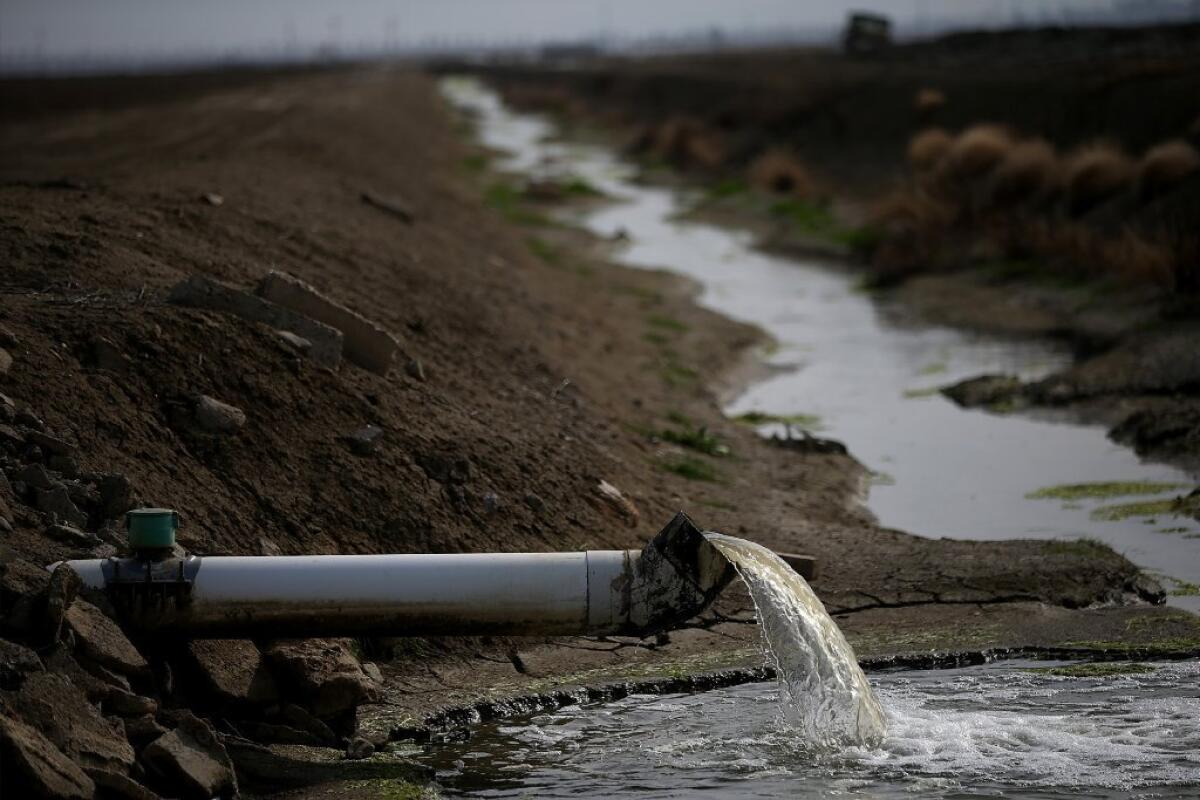Wanna be a drought-buster? Heed the lessons of the slop jar.

If you’re a city person, you might only have read of chamber pots, an inconvenient though useful contraption from an earlier time. In the part of Texas where I grew up, the term “chamber pot” was a tad too genteel. We called these essentials “slop jars” or just “the pot.”
Whatever you called it, I had to empty it.
Our house sat on a slight rise facing busy Highway 31. The outhouse was back of the house, toward the woods, maybe 50 feet away.
PHOTOS: 5 Senate women to watch in 2014
It was tricky running with the pot to the outhouse. I had learned through experience to leave the cover at the house. I had a special Slop Jar Samba, where I took many small, fast steps, as smoothly as I could, and held the contents away from me, my arms stiff. I was terrified that I would be seen by people in cars passing on the highway below. It didn’t matter that all along the highway there were other people also emptying their nightly pots.
This was late 1950s America. Whenever I read attacks on President Franklin D. Roosevelt’s New Deal, I wonder if these people ever lived in rural Texas. FDR’s vision brought electricity to widely separated houses, where kerosene had reigned supreme. But not even his mighty Rural Electrification Administration or the New Deal could influence where water congregated.
My family’s lack of an indoor toilet was not because of finances. In fact, my father had drilled at least three times in failed attempts to hit enough water to support a flush toilet. But the elusive Carrizo-Wilcox Aquifer of northeastern Texas was too deep where our house stood.
PHOTOS: Seven foods, genetically engineered
Not everybody had outhouses; it was strictly dependent on the depth of the aquifer under your property. Our neighbors about a quarter of mile to the west had an outhouse. Our neighbors about a quarter of a mile to the east had an indoor toilet; and so it went.
My father built the outhouse to last, with thick, heavy boards. The door had a powerful self-closing spring on it with a lock on the inside. As soon as you were in and took your hand off the door, it closed fast and hard. His intent was to keep out wasps, granddaddy long legs, dirt daubers, bees and other insects, including a seasonal parade of big dung beetles that could grow as big as 2 inches. My father used to say they had saddles on them for the spiders.
There is no way that a prepubescent girl could want anybody to see her emptying a pot. But I was an only child and never complained about this chore. Who would empty it if not I? Oh, but how I hated it.
PHOTO ESSAY: Obamacare -- and 8 other bungled launches
Then, in 1959, a bond passed in Henderson County, Texas. The Leagueville Water Cooperative was formed and a giant water well was drilled, far deeper than most individuals could afford to go. Water pipes were laid to all the houses in the area. The first time I washed my hair with the “new” water, I filled a gallon jug to rinse in case the water ran out while I was washing. I was reluctant to take a real bath at first; what if I used too much and we had to go back to the pot?
When I sold my parents’ home in 2001, I also sold their founding share in the cooperative. Today, it is still the way people who live outside the limits of city-provided water pipes get their water.
But the days of pot emptying, and the appreciation of water, have stayed with me. Whenever I use a toilet at a rest stop or a park that has an opening to the outside, I always look around to see what insects are there. I can take a shower, including washing my hair, in three minutes. This skill served me well when I lived in more austere Europe, where water sometimes is available on a schedule.
In 1984, I moved to Manhattan in the midst of Mayor Ed Koch’s water conservation campaign, and I instantly identified with his motto: “If it’s yellow, let it mellow. If it’s brown, flush it down.” Whenever New Yorkers grumbled, I did not.
Now I live in California and find myself again worrying about water. We are careless with this most treasured gift from the planet. We may learn what I knew as a kid in rural Texas doing my morning chores: Water on demand, and water to flush away our waste, is a luxury. Can we dig deep enough to keep it flowing?
Dinah Hatton is a freelance writer in Santa Monica.
More to Read
A cure for the common opinion
Get thought-provoking perspectives with our weekly newsletter.
You may occasionally receive promotional content from the Los Angeles Times.










